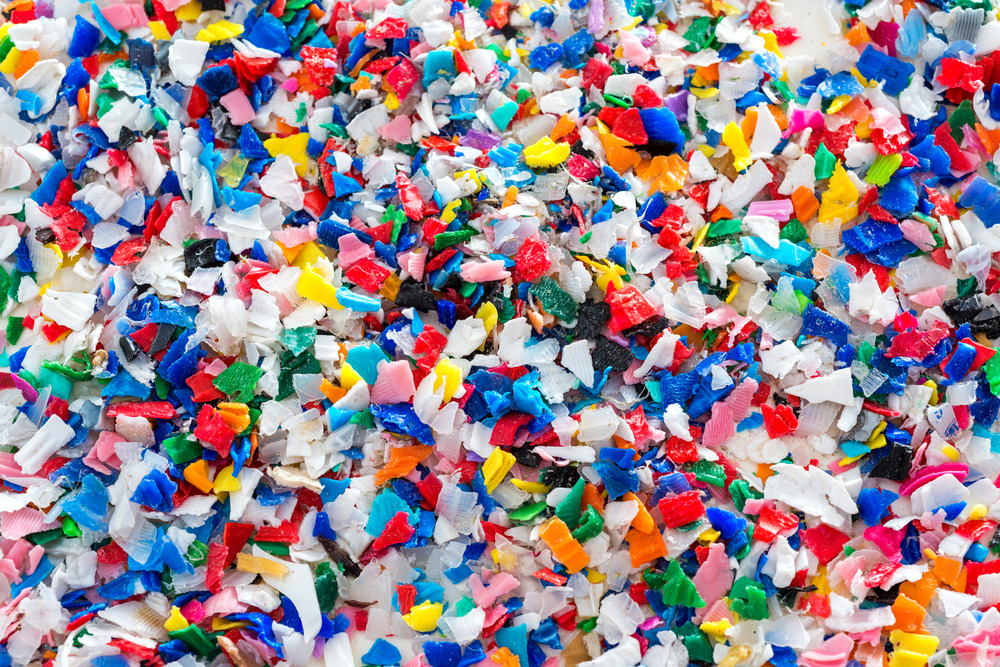Why You Should Be Using Regrind for Manufacturing

We both buy and sell industrial plastic here at Seraphim Plastics. The plastic we sell is regrind – essentially scrap plastic reduced to small pellets ready to be combined with virgin plastic for new manufacturing. Granted, there are some concerns with regrind in terms of product quality and repeatability. But those concerns can be effectively addressed.
Regrind is certainly not appropriate for each and every part manufactured with plastic. But it is appropriate for quite a few applications. If your company is involved in traditional injection mold manufacturing and you have never considered using regrind, we hope you will reconsider. Here are four particularly good reasons to reevaluate whether regrind is applicable to your business:
1. New Manufacturing Methods
One of the chief concerns with regrind is product variability. It is an issue we totally understand. The scrap plastic we purchase and recycle can vary quite a bit in terms of age, quality, and integrity. There is also the question of variability in terms of the material that actually constitutes a load of regrind. Manufacturers are always wary about variability because it leads to higher scrap rates, etc.
That being said, new manufacturing methods are being developed all the time. One particular method that has proven remarkably successful with regrind is low, constant pressure molding. It is a form of injection mold manufacturing that eliminates most of the problems associated with regrind. You can read more about it in this great piece from Recycling Today.
2. Fluctuating Plastic Prices
As you know, virgin plastic is manufactured by way of petroleum processing. As petroleum prices fluctuate, so do plastic prices. This is not good for a company’s bottom line. Furthermore, it can be difficult for manufacturers to manage their budgets when petroleum prices are constantly in flux.
Incorporating plastic regrind can bring a bit more stability back to the budget. It can help manufacturers better control how much they spend on raw materials. It is even possible to save money with regrind in some circumstances.
3. Certain Plastics Are Very Recyclable
Different types of plastics react to mechanical recycling in different ways. Some are more recyclable than others. Take PET. It is easily the most recycled plastic in the world. Its makeup and composition dictate that PET can be mechanically recycled almost endlessly. Why not take advantage of such an excellent product?
The caveat here is that plastic scrap needs to be clean and sorted prior to being obtained by the recycler in order to make the process financially viable. Otherwise, the price for regrind gets too high and manufacturers will not buy it. But that is another topic for another post.
4. Unnecessary Waste is Wasteful
Every manufacturing process produces waste of some sort. Waste is inevitable. But there is a difference between producing waste normally associated with manufacturing and producing waste unnecessarily. The latter doesn’t make a lot of sense.
Customers who sell us their scrap plastic would otherwise throw it away if they didn’t have the opportunity to recycle. Doing so represents unnecessary waste. Likewise, manufacturers letting that scrap go to waste is wasteful. If it can be collected, recycled, and put back into the manufacturing process, doesn’t it make sense to do so? Yes, it does.
As an injection mold manufacturer, your company has options. Management ultimately needs to decide whether regrind is appropriate for what you do. We hope you will consider at least looking into regrind. Feel free to contact Seraphim Plastics to learn more about the plastic we sell. It may be the perfect fit for your manufacturing process.